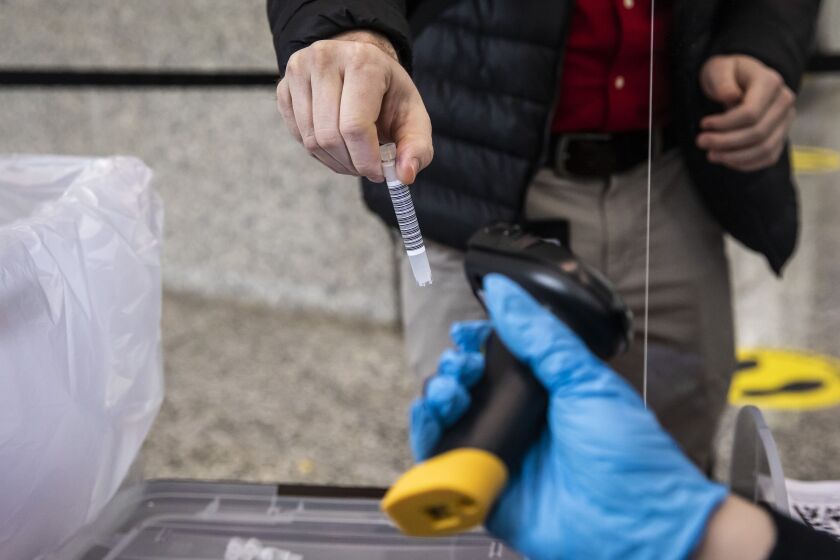Public health officials say Illinois’ Omicron surge is showing promising signs of an “exponential decay” that’s almost as dramatic as its meteoric rise, but its damaging effects are still being felt statewide.
The Illinois Department of Public Health on Thursday reported 14,422 new COVID-19 infections that lowered the seven-day average case positivity rate to 10.7%, as low as that infection rate has sunk since the holidays.
And the state’s hospitals — while still overburdened — reported 4,824 beds were occupied with infected patients as of Wednesday night, the first time admissions have fallen below 5,000 since Dec. 26.
The encouraging trends are playing out in Chicago, too, where cases and new hospitalizations have dipped 49% and 31%, respectively, in a week.
“We are seeing this sort of exponential decay of that really [Omicron wave] matching the exponential rise,” Chicago Public Health Commissioner Dr. Allison Arwady said. “But don’t make the mistake of thinking that this is done.”
It’s nowhere near done in intensive care units, which are still 88% full statewide, a number that has inched downward only slightly over the last week. Southern Illinois hospitals are still being stretched nearly to the limit at 96% capacity, leaving only three ICU beds available.
Graph not displaying properly? Click here.
The state on Thursday also reported 149 COVID deaths, more than a thousand of which have been confirmed over the past eight days alone. With four days left in the month, Illinois has suffered almost as many COVID deaths in January (2,651) as it did over the previous three months combined (2,941).
The final and most tragic indicator of the surge, deaths have only started to show signs of slowing over the past three days. The state has now averaged 123 deaths per day over the last week, down from a 13-month high rate of 132 as of Tuesday.
The virus is still claiming about 21 Chicagoans per day, a rate that has dipped 12% compared to last week.
“When this [pandemic] was in very good control last summer, we were seeing three deaths a day. And even three deaths a day is 1000 deaths a year from COVID. So this does remain a really dangerous illness,” Arwady said.
But data shows it’s much less illness for people who are fully vaccinated and boosted. Unvaccinated residents have proven five times more likely to end up in a hospital bed compared to Chicagoans who come down with a breakthrough case.
About 80% of eligible residents in the city and across Illinois have gotten a shot — but that means almost a fifth of the population remain unvaccinated.
For help finding a shot, or to set up a free in-home vaccination appointment, visit chicago.gov/covidvax or call (312) 746-4835.






